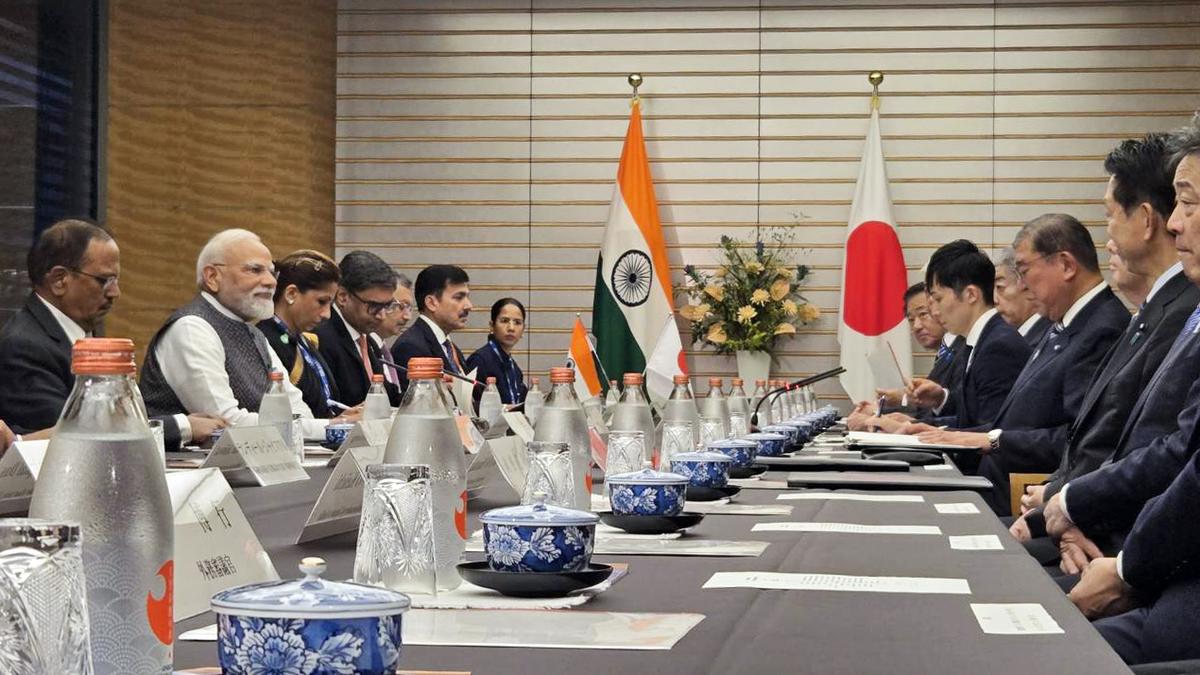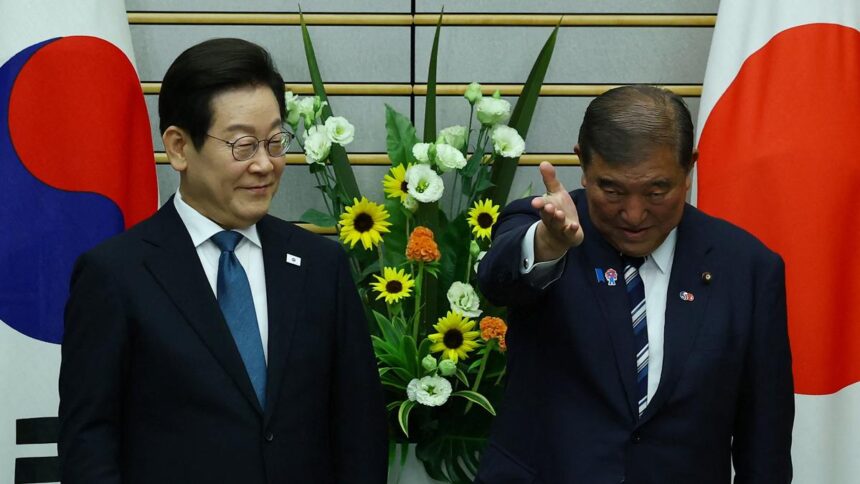
Prime Minister Narendra Modi, during the 15th India-Japan Annual Summit with Japan PM Shigeru Ishiba, in Tokyo on August 29, 2025. Photo: X/@shigeruishiba via ANI
With Prime Minister Narendra Modi on a visit to Japan, India’s Environment Ministry said on Friday (August 29, 2025) it had signed a Memorandum of Cooperation with Tokyo earlier this month on a first of its kind Joint Crediting Mechanism (JCM).
The JCM is a Japanese initiative, whereby the country implements and invests in low-carbon technologies in developing countries and the resulting savings in emissions are credited to Japan’s account as carbon credits, that it can use to meet its national emissions-reduction targets.

Not counting India, Japan has signed JCM agreements with 30 other countries which are in various stages of implementation.
“The JCM will encourage the flow of investment, technology assistance, including technology transfer and capacity building support for the implementation of projects involving these low carbon technologies. It will also develop domestic ecosystem and partnerships to localise low carbon technologies and associated high technology interventions related to equipment, machinery, products, systems and infrastructure, paving the way for their large-scale deployment,” the Environment Ministry said in a statement.
The Memorandum of Cooperation would further facilitate the implementation of projects contributing to greenhouse gas (GHG) reduction or removal and sustainable development in India. It will also enable the international trading of carbon credits generated from such projects under Article 6.2 of the Paris Agreement with Japan and other countries on similar lines, “without adversely impacting” India’s NDC (Nationally Determined Contribution) commitments, it added.
India’s NDC commits to reducing its GDP’s emission intensity by 45% by 2030 from 2005 levels, achieving 50% cumulative electric power capacity from non-fossil fuel sources by 2030, and creating an additional carbon sink of 2.5-3 billion tonnes of CO2 equivalent by 2030 through afforestation.

Earlier this week, the Environment Ministry constituted the ‘National Designated Authority (NDA),’ which is the nodal agency to approve such projects, evaluate emission reductions and oversee the functioning of the Indian carbon market.
The Environment Ministry said it had also received authorisation from the Union Cabinet to finalise the Rules of Implementation (RoI) and for signing agreements with other countries on similar lines under Article 6.2 of Paris Agreement, in consultation with the concerned Ministries of Government of India and the Ministry of External Affairs, the statement added.
Published – August 29, 2025 11:43 pm IST




















